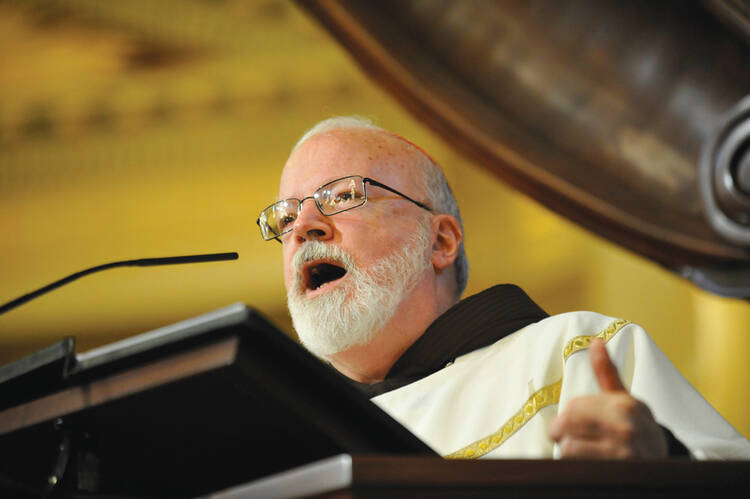In New Orleans to celebrate Mass and preach at the Louisiana Priests’ Convention, Cardinal Sean P. O’Malley, O.F.M.Cap., of Boston, one of eight cardinals appointed by Pope Francis to serve as an advisory council on possible reforms of the Roman Curia, said he did not know what to expect from an upcoming gathering of the council with the pope in Rome. “Obviously, there’ve been many surprises in the last few months,” he said, “and I think there’ll be more of the same.”
The eight cardinals are scheduled to issue their report on Curial reform and then discuss the issue with Pope Francis before accompanying the pontiff to Assisi on Oct. 4, the feast of St. Francis of Assisi.
Cardinal O’Malley said the group of eight cardinals planned to meet first among themselves at the end of September. He said he has received extensive feedback from cardinals and archbishops in the United States and Canada in preparation for the meeting with the pope on Oct. 1–3.
Pope Francis established the so-called G-8 in April, giving it a mandate to advise him in the “government of the universal church” and his reform of the Roman Curia, the church’s central administration at the Vatican. Cardinal O’Malley said he was “very surprised and honored” when Pope Francis asked him and the other cardinals in April to offer their feedback on the Curia. “It’s something new in the church, and it is, I think, an opportunity for the Holy Father to have more input from the entire church.”
The Boston prelate said several of the cardinals on the panel had a preliminary meeting at World Youth Day in Brazil in July, and “we have been in correspondence with each other and with the Holy Father. Different cardinals have done different things to try and solicit ideas from a larger group.”
Cardinal O’Malley said he has met personally with the U.S. cardinals and written letters to the archbishops of the United States and Canada, various groups of religious and other individuals asking for suggestions or feedback. He said he wrote to the archbishops because “usually archbishops have been bishops in more than one diocese and have been bishops for a while.”
Analyzing the feedback, Cardinal O’Malley said, “There were a lot of things that were similar. There was a certain pattern in the suggestions that came back. I think that will help to indicate the strength of interest in those areas.
“I think for some time people have wanted to have more communication between the Holy See and the church in different parts of the world, the bishops’ conferences and the cardinals,” he continued. “The Holy Father, I think, has picked up on that and is trying to underscore the catholicity of the church.”








